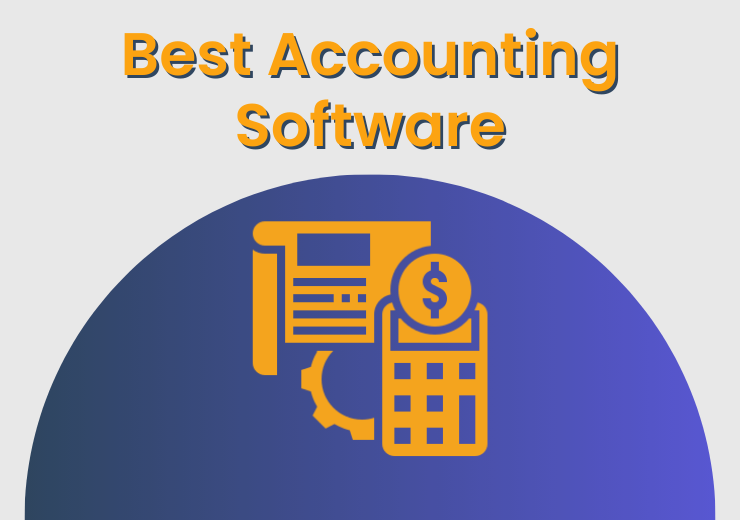Introduction: The Need for Accounting Software
Managing finances is a crucial aspect of running any business, but it can be time-consuming and prone to errors when done manually. Enter accounting software – a digital tool designed to streamline financial processes, enhance accuracy, and provide real-time insights into your business’s financial health.
Key Features to Look for
When considering accounting software, keep an eye out for key features that can make your financial management a breeze:
- Invoicing and Billing: Generate and send invoices effortlessly.
- Expense Tracking: Monitor and categorize expenses for better budgeting.
- Financial Reporting: Access a variety of reports for insightful analysis.
- Automation: Automate recurring tasks to save time.
- Bank Reconciliation: Easily reconcile bank statements with your records.
Top 5 Accounting Software for Businesses
QuickBooks Online
QuickBooks Online is a market leader, offering an array of features suitable for small to large businesses. It provides invoicing, expense tracking, tax calculation, and even integration with other business tools.
Xero
Xero is known for its user-friendly interface and powerful features. It allows for collaboration with accountants and provides a holistic view of your finances.
FreshBooks
FreshBooks excels in invoicing and time tracking. It’s a great choice for freelancers and service-based businesses.
Zoho Books
Zoho Books offers a comprehensive suite of accounting tools with a strong emphasis on automation. It’s suitable for businesses of all sizes.
Wave Financial
Wave Financial stands out for its free accounting software with essential features. It’s particularly popular among startups and small businesses.
How to Choose the Right Software for Your Business
Selecting the right accounting software depends on factors such as your business size, industry, budget, and required features. Consider whether the software integrates with your existing tools and if it provides room for scalability.
Benefits of Using Accounting Software
Using accounting software offers numerous benefits:
- Time Efficiency: Reduce manual data entry and save time.
- Accuracy: Minimize human errors in calculations.
- Financial Insights: Access real-time financial data for informed decisions.
- Tax Compliance: Easily manage tax-related tasks.
- Automation: Automate repetitive tasks, boosting productivity.
Implementation and Getting Started
Getting started with accounting software involves:
- Choosing the Software: Evaluate options based on your needs.
- Data Migration: Transfer existing data to the new system.
- Training: Train your team to effectively use the software.
- Integration: Integrate the software with other tools.
Overcoming Common Challenges
While accounting software offers numerous benefits, challenges might arise, such as data security concerns and the learning curve. However, these challenges can be mitigated through proper training and data protection measures.
Future Trends in Accounting Software
The world of accounting software is ever-evolving. Look out for trends like artificial intelligence-driven automation, enhanced data analytics, and more integrations with third-party applications.
Security Measures and Data Protection
Since accounting software handles sensitive financial data, robust security measures are crucial. Choose software providers that offer data encryption, secure servers, and regular security updates.
Pricing Plans: What to Expect
Accounting software pricing varies based on features and usage. Most software offers tiered plans – from basic to advanced – allowing you to choose the one that suits your needs and budget.
Customer Support and Resources
Good customer support can make a significant difference in your experience with accounting software. Look for providers that offer responsive customer support and comprehensive online resources.
Conclusion
Incorporating the right accounting software into your business operations can significantly enhance your financial management efficiency. From automated processes to accurate reporting, these tools empower you to focus on what truly matters – growing your business.
FAQs
-
Is accounting software suitable for small businesses?
Yes, many accounting software options cater specifically to small businesses, offering features tailored to their needs.
-
Can I access my financial data on mobile devices?
Most modern accounting software offers mobile apps or responsive web interfaces, allowing you to access your data on the go.
-
Do I need an accounting background to use these tools?
No, most accounting software is designed for ease of use, with intuitive interfaces that don’t require extensive accounting knowledge.
-
Can I switch between pricing tiers as my business grows?
Absolutely, accounting software often allows you to upgrade or downgrade your plan based on your evolving business requirements.
-
How often should I back up my data when using accounting software?
It’s recommended to set up regular automated backups, preferably on a daily basis, to ensure your financial data is secure and up to date.

